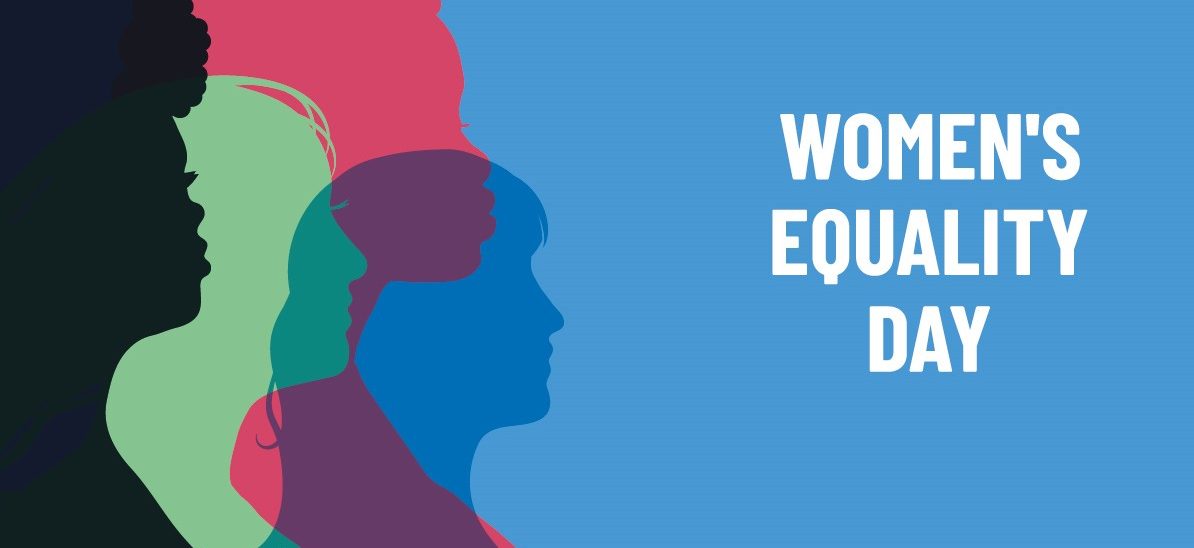Wisdom from female industry experts this Women’s Equality Day

Happy Women’s Equality Day. To celebrate, Top Business Tech shares the thoughts from various female industry experts on the state of gender equality in the workplace.
Women’s Equality Day is rooted in the celebration of the day that American women were officially granted the vote in 1920 and when the 19th Amendment was added to the US Constitution. Globally, it is now an opportunity to recognise and honour women’s suffrage, as well as inspiring a call to action for accelerating women’s equality.
This is particularly important considering the events of the last year, which cast a worrying light on progress towards gender parity. According to McKinsey’s global report on COVID-19 and gender equality: Countering the regressive effects, Women make up 39% of global employment but account for 54% of overall job losses since the pandemic. In addition to this, in 2021 just 19% of UK employees think there is gender equality in their workplace
Whilst the number of female directors in FTSE companies has risen by 50% in the past five years, women still occupy just under 35% of senior roles in the leading 350 UK businesses. This is despite the fact that gender parity is crucial for COVID-19 recovery, as new research reveals women in senior roles outperform male-run companies by nearly 40%.
Svenja de Vos, CTO, Leaseweb Global

“Successful organizations are built on a diverse workforce. In today’s competitive technology landscape, it has been proven that companies that lead in gender diversity also lead in performance and profitability. In order to create products and services that break the mould, we need leaders who come from different backgrounds and life experiences.

I truly believe a key reason for the low number of women in technology can be attributed to a lack of role models and mentors; there simply aren’t enough. Despite women holding more leadership roles in tech than ever, there still is vast room for improvement. Applying to work in a male-dominated industry can be intimidating, but it needs to be done to bring change. We need to break the unconscious bias that women are not suited to be tech leaders by providing examples that they can be.
Women’s Equality Day reminds us to celebrate the women that broke barriers in the industry and across the world, and of the work, we as an industry, still have left to do. As our world becomes increasingly defined by tech, we need to create and elevate more female role models who can open the way for young girls to follow in their footsteps.”
Mini Biswas, Pre-Sales Manager at Node4

“It’s Women’s Equality Day – I mean the fact that there is a day for us women to speak out and represent shows that many of us feel the same.
Putting feelings aside, let’s look at the facts – there is inequality out there even on our own turf in the UK, including London, one of the greatest cities in the world.
London has the largest gender pay gap with men earning over 30% more than women. In the United Kingdom, among the companies in the FTSE 100 index, women hold only 22.8% of board seats. There is a lack of women in top jobs from diverse backgrounds and working mothers are now working fewer hours or have stopped working altogether.
UK women are also hit by a Gender PENSION Gap – the gap increases to 51% in the fifties age bracket, and then to 56% at retirement.
Shockingly, women in tech are nearly twice as likely as men to have lost their jobs or been furloughed due to the pandemic. A common reason cited for this figure is childcare – by putting mothers on furlough, they were freed of childcare worries whilst juggling their work responsibilities. This makes it clear that women are disadvantaged in the workplace – men were not furloughed due to childcare duties.
There are other ways that working mothers could be supported without a furloughed year off work and the missed opportunities to develop and progress that come with that. 45% of working mothers said they were currently working below their experience and pay grade to fit work around school hours. Women should not be denied promotions due to lack of childcare options. Again, men are not held back by their children’s needs.
What can businesses do more of to support women?
– Appoint more women in senior leadership roles and increase their representation.
– Close the gender pay gap.
– Create gender and ethnically balanced teams.
– Address behaviours and create inclusive cultures.
– Build a value case to support the above so everyone in the business understands the value of diversity.
– Lead the change and become an upstander versus a bystander.
Companies need to put more support in for working mothers. Being flexible with working hours, allowing them to work from home when needed, or working outside of typical work hours will help women to not feel weighed down by their duties as a parent.
Offering equal paternity and maternity leave would also reduce the stigma around working mothers and put an equal share of the burden of childcare on fathers.
This Women’s Equality Day, we should be pushing for equality in the domestic and workspace and stop stereotyping women as mothers and men as workers.
Proven research shows that if women were fully utilised in the UK economy, there could be £150 billion added to the economy by 2030 – yes that’s right. Read this again!”
Gillian Mahon, Chief People and Places Officer at Totalmobile

“As we celebrate how far women have come throughout history, we also need to recognise that there is still work to be done. But we’re continually making progress – just this month, the highest-ever proportion of girls achieved an A grade and above in Maths A-level in England. The technology industry is experiencing a surge in demand for new talent, and this is providing great opportunities for more women to enter and progress in this industry. Every business can benefit from gender diversity – particularly in areas that are traditionally more male-dominated, such as technology – and that’s why it’s so important to encourage more girls to study STEM at school and university.
“The most impactful way to increase the number of girls taking a serious interest in technology subjects and careers is through visibility. If they don’t see any women in tech growing up, it’s harder to envision that as a path for themselves. We need to show them that it can be done and women can thrive in these careers. Many organisations have been set up to work with schools and businesses to show girls what a career in tech could look like, such as Women Who Code, which a number of our staff are passionately involved in. By getting female developers, engineers and senior leaders together with teenage girls and young women, and discussing what makes their job exciting and fulfilling, we can have a positive effect on the direction that these young people’s lives take; that’s something we can all be proud of.”
Sara Hamilton, Deputy Director of Product and Managed Services, Mango Solutions

“Workplace diversity – be it in respect to gender, ethnicity, age, sexual orientation or other – can bring huge benefits to tech companies. When it comes to the number of women working in the field of data science, we’re beginning to see numbers rise. A recent study reported an increase in the number of women in Data & Analytics roles across the board relative to previous years. However, Data Science recorded the fewest women, making up just 20% of the workforce. Clearly, this has to change. It’s proven that a more diverse workforce brings a variety of perspectives, which has a knock-on effect in increased creativity, faster problem-solving and improved products. But it’s not only products that can improve this way, the company culture can, too. Helping employees feel included, no matter their background or gender, can break down barriers and reduce the fear of being rejected. This is a great way to empower your employees and harness their ideas and thoughts. And in addition, almost as a side benefit, attract more great talent.”
- The security threat of Bring Your Own Device (BYOD) initiatives
- How CIOs can become CEOs: tips from a tech leadership headhunter
- Why More Women are Choosing STEM Careers and Stereotypes Are Being Smashed
- What’s the state of gender diversity in the tech industry?
Kate Bachman, director of partner communications, ConnectWise
“Women’s Equality Day makes me think about the paths that have been laid, the ones we’re fighting for, and the battles that we won’t be able to finish. The right to vote, the CEO position, equal pay, body autonomy, the presidency – there are a million and one fights we’ve had, and have to have on the long, splintered road to equality. Each battle won is another brick laid down for future generations to walk further, so that humanity can evolve. I worry that we are not advancing that road fast enough. I know brilliant, talented and wonderful women who have pushed throughout their careers and I see them consistently held to higher standards, only to be paid less. Being expected to perform better and more consistently, yet not have the title. To be shamed for showing up as a whole person and not this ‘ideal employee’ made in the image of a 1950s white-collar, middle-class male. Yes, this day is about celebrating how far we have come, but it should also be a day that we remember with fury that there are more battles to win so that those who we mentor, those who we raise don’t have to have the same fights we have today.”
For more news from Top Business Tech, don’t forget to subscribe to our daily bulletin!
